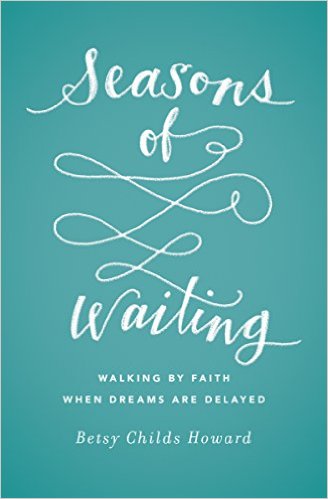G. K. Chesterton said that “men are homesick in their homes.” While most of us have more than adequate shelter, We still live with a craving for home. You may long for home because you’ve moved around so much that you don’t really know where home is. You may live far away from your family and long to live near them. You may long for family you would want to live near. Some people live with a longing for a home in which they feel safe and loved.
Sometimes life can feel like one long transition. I heard one single woman describe her longing for home as the desire to live somewhere for ten years. She lived from year to year with different roommates in different places. She longed for a home she could nest in, knowing she wouldn’t have to pack up when the year’s lease ran out. Her longing wasn’t really for a house, but for permanence and roots.
Why are we homesick? Even though our longings for home may focus on what is less than ideal about where we live or with whom, deep down we are homesick because this is not our home. If you’re a believer in Jesus, you’re a citizen of heaven (Phil. 3:20). We live on earth, but “we are waiting for new heavens and a new earth in which righteousness dwells” (2 Pet. 3:13).

Exiles, Not Immigrants
If you feel homesick in your own home, it may be a good sign your citizenship is elsewhere. Exiles live differently from immigrants. An immigrant has chosen a new homeland. He and his family assimilate. They learn the language and customs, and he never expects his children to return to the land they’ve left. But to call someone an exile implies he would prefer to be in his homeland. He had to leave, but he hopes to return. Whether he’s living in a refugee camp or an embassy, he strives to keep his national identity intact.
The prophet Daniel was a true exile in Babylon. Brought from his homeland of Judah by the order of King Nebuchadnezzar, he was thrust into the lavish life of a Babylonian palace. Daniel knew he couldn’t eat the rich food and wine he would be served (which had probably been offered as sacrifices to pagan gods) if he was to keep the law of Moses that God had graciously given to the Jewish people. Daniel chose to keep the law of the God of Israel even though he was in place where it would’ve been to his advantage to assimilate and worship the local gods.
Daniel didn’t make himself a nuisance to the Babylonians. In fact, he was so wise that he became invaluable to the rulers of the empire, first Nebuchadnezzar, and then Darius after him. Living as a faithful exile earned Daniel enemies as well. He found such favor with the king that other officials were jealous and sought to do away with him. They said, “We shall not find any ground for complaint against this Daniel unless we find it in connection with the law of his God” (Dan. 6:5).
Daniel’s enemies decided to exploit his faithfulness. When they passed a law that no one could pray to any god but King Darius, Daniel chose to obey God’s law rather than man’s. He kept on praying to the God of Israel three times a day, just like his enemies knew he would, and he landed in a lions’ den. King Darius was so distraught over losing his trusted counselor that he stayed up all night waiting to see how Daniel fared. When he found him alive the next morning, he praised Daniel’s God and threw his accusers into the lions’ den.
What was Daniel praying for three times a day? He was praying God would return his people to the Promised Land. Yet even as he pined and prayed, he served others in his exile. He lived like a Jew rather than a Babylonian or a Persian, and he didn’t compromise his identity as a child of the promise. If you feel like an exile, out of step with aspects of the culture of this world and sometimes despised, you’re in good company.
Making the Most of Homesickness
Does the fact we’re not yet in our eternal home mean we shouldn’t care where or how we live? Does it mean you should stop recycling and resign from your neighborhood association? Not at all. C. S. Lewis presents a different picture of the sojourner’s mindset:
If you read history you will find that the Christians who did the most for the present world were just those who thought most of the next. The apostles themselves, who set on foot the conversion of the Roman Empire, the great men who built up the Middle Ages, the English Evangelicals who abolished the Slave Trade, all left their mark on earth, precisely because their minds were occupied with heaven. It is since Christians have largely ceased to think of the other world that they have become so ineffective in this. Aim at heaven and you will get earth “thrown in.” Aim at earth and you will get neither.
Lewis gets at the truth of Jesus’s words in Matthew 16:25: “For whoever would save his life will lose it, but whoever loses his life for my sake will find it.” When you know your home is in heaven, you’re willing to take more risks in this life. You can make sacrifices on behalf of your neighbor because you’re not obsessed with protecting what’s yours.
Waiting for your heavenly home should free you to invite all kinds of people into your earthly home. You can welcome the poor and the little child without being afraid they will take something or break something. Rather than making you careless and neglectful of your home, a heavenly mindset should inspire you to make your home welcoming and pleasant for others.
I’ve noticed that the people who tend to be best at welcoming friends and acquaintances into their homes for holidays are those who live in a place where they don’t have extended family. If you live in the city where you grew up and are surrounded by relatives, you probably have family obligations around holidays. If your family eats Christmas Eve dinner at your grandmother’s house and Christmas brunch at your in-laws’, you may not have the freedom to invite those from your church who don’t have Christmas plans. Yet people who live far from their hometown and family have the opportunity to welcome strangers into their homes on these special days. There’s more room at the table.
Expat communities overseas are great at banding together to celebrate the holidays of their home countries. Americans living everywhere from Scotland to Singapore celebrate Thanksgiving with the closest thing to a turkey they can find. This should be our model as we seek to live as citizens of heaven at home on this earth. We’re joined to other Christians by a love for our homeland. We can celebrate in the fellowship of that common citizenship any time believers are together, not just at holidays. And like expats who welcome locals into their homes to teach them about their homeland’s traditions, we should be eager to bring the lost to our table. The more the merrier.
Editors’ note: This is an adapted excerpt from Betsy Childs Howard’s new book, Seasons of Waiting: Walking By Faith When Dreams Are Delayed (Crossway, 2016).
Download your free Christmas playlist by TGC editor Brett McCracken!
 It’s that time of year, when the world falls in love—with Christmas music! If you’re ready to immerse yourself in the sounds of the season, we’ve got a brand-new playlist for you. The Gospel Coalition’s free 2025 Christmas playlist is full of joyful, festive, and nostalgic songs to help you celebrate the sweetness of this sacred season.
It’s that time of year, when the world falls in love—with Christmas music! If you’re ready to immerse yourself in the sounds of the season, we’ve got a brand-new playlist for you. The Gospel Coalition’s free 2025 Christmas playlist is full of joyful, festive, and nostalgic songs to help you celebrate the sweetness of this sacred season.
The 75 songs on this playlist are all recordings from at least 20 years ago—most of them from further back in the 1950s and 1960s. Each song has been thoughtfully selected by TGC Arts & Culture Editor Brett McCracken to cultivate a fun but meaningful mix of vintage Christmas vibes.
To start listening to this free resource, simply click below to receive your link to the private playlist on Spotify or Apple Music.



































